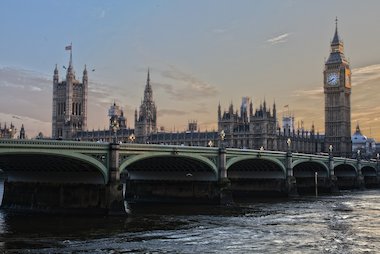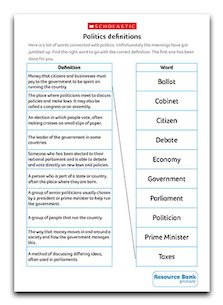Politics (Lesson 1)
Add to My Folder
Teach your children about the history of British politics with this three-part series of lessons.

Children may not realise it but they engage in politics, that’s with a small ‘p’, in ordinary situations daily. They engage in the realm of what is often known as micropolitics, for example, they make individual or group decisions about what to study at school, how to spend pocket money, which club or organisation to belong to and which friends they want to invite to their party.
It is increasingly important nowadays that children start to learn about Politics with a capital ‘P’ and not just that it’s a lot of smartly dressed people talking about and voting on issues in a series of old buildings in London. They should come to understand who makes the decisions, who holds the power and what exercising authority is all about.
Activities:
What’s in a word?
Thought-shower what children think the word ‘politics’ actually means and what they understand by the term. For what it’s worth, The Oxford English Dictionary describes politics as: ‘The activities associated with the governance of a country or area’ and ‘A particular set of political beliefs and principles.’ Include other related terms in the discussion of meanings like ‘government’, ‘politician’, ‘Member of Parliament’, ‘House of Commons’, ‘political party’, ‘Prime Minister’ and ‘political party’ (see also Activity Sheet 1: Politics definitions).
In the beginning
Some 2600 years ago, the people of Ancient Greece organised themselves into small independent and autonomous ‘poleis’ or city-states. These were not just cities but also the smaller communities and individual villages and farms that surrounded them. The Greek word for citizen is ‘polites’ from which the word politics comes and other connected words like cosmopolitan and metropolitan. Some of the main Greek city-states were Athens, Sparta, Thebes and Corinth. Each city-state had its own laws, currency and government although everyone spoke Greek. From the Greeks, we have also inherited the word democracy (rule by the people) from ‘demos’ meaning people and ‘kratia’ meaning power or rule. The city-state of Athens, for example, was not democratic in the modern sense of the word though since not all men, (often only about 20% of them) and no women, were allowed to vote.
Published 10 June 2019
Reviews
You need to be signed in to place a review.


